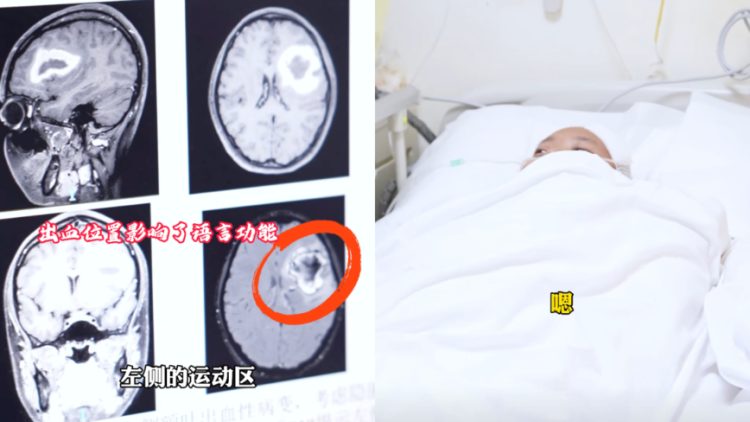24-Year-Old Woman Mysteriously Stops Speaking Language She Was Fluent In

Chinese doctors were recently baffled by the curious case of a young woman who suddenly became unable to speak English, a language she had been fluent in. Last week, Wan Feng, the director of the Department of Neurosurgery at Guangdong Provincial People’s Hospital in Guangzhou, China, posted a video of a 24-year-old woman who had […]
Rare Condition Makes 23-Year-Old Man Look Like 13-Year-Old Boy

23-year-old Luiz Augusto Márcio Marques stopped growing after undergoing a surgical procedure to remove a very rare and aggressive tumor. Today he looks like a 13-year-old boy. Luiz, who is better known as Guto in his native city of Passo Fundo, in Southern Brazil, had a perfectly normal life until the age of 7, when […]
Real-Life Groundhog Day – Rare Condition Causes Man to Live the Same Day on Repeat

A rare condition called déjà vécu has been causing an 80-year-old man to perceive every event in his life as a previous experience, similar to the time loop described in the movie Groundhog Day. Can you imagine watching TV and seeing the same thing over and over again, or trying to read a new book […]
37-Year-Old Man Wakes Up One Day Thinking He is 16 And Still in High-School

A 37-year-old father of one from Texas woke up one day ready to go to school, thinking it was the 1990s, after losing the last two decades of his life, including ever marrying his wife and having a daughter. In July of last year, Daniel Porter, a hearing specialist from Texas woke up in his […]
Blind Mind’s Eye – Bizarre Condition Prevents Man From Seeing Pictures in His Head

44-year-old Niel Kenmuir suffers from aphantashia, a rare and strange medical condition that prevents him from visualizing things in his head. Niel first realized that there was something different about his brain when he was in primary school. He had trouble falling asleep at night, so his step-father told him to close his eyes and […]
The Lazarus Drug – A Sleeping Pill That Can Temporarily Fix Severe Brain Damage

Zolpidem is a sedative from the imidazopyridine class of drugs that is most commonly used to help people fall asleep faster. But, in rare cases, this common drug can actually restore function to damaged brains. There is a reason why zolpidem is sometimes referred to as the “Lazarus Drug”. If you give this pill to […]
The Curious Case of a Man Who Cannot See Simple Digits From 2 to 9

Scientists at Johns Hopkins University recently reported the strange case of a man’s whose rare degenerative brain disease left him unable to distinguish basic numbers from 2 to 9. After studying an engineering geologist diagnosed with a rare degenerative brain disease called corticobasal syndrome for eight years, researchers published a study which they claim suggests […]
Rare Condition Causes Teen’s Short Term Memory to Reset Every Day

A year and a half ago, Caitlin Little, a sophomore at Southeast Guilford High School in Greensboro, North Carolina, suffered a concussion during a cross-country practice which left her with a rare form of amnesia. All of her new memories are erased each night, so every morning she wakes up thinking it’s October 2017. Caitlin’s case […]
